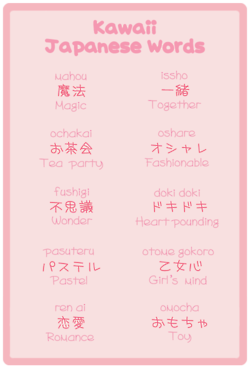In the world of language and culture, expressing affection and feelings is a universal human experience. Whether you’re traveling to Japan, making new friends, or simply want to convey your emotions, learning how to say “I like you” in Japanese can be a meaningful and delightful journey. In this comprehensive guide, we will explore various ways to express your fondness in Japanese, uncover cultural nuances, and provide you with the linguistic tools you need to convey your emotions effectively.
1. Translation of “I Like You”

Let’s start with the most straightforward translation of “I like you” in Japanese:
- “好きです” (Suki desu): This is a direct and commonly used expression for expressing affection towards someone. It’s versatile and can be used with friends, family, or a romantic interest.
However, the Japanese language is rich in nuances, and there are more ways to convey your feelings, depending on the context and the level of your emotions.
2. Understanding the Context

In Japanese culture, expressing emotions openly, especially romantic feelings, can be more reserved compared to Western cultures. It’s essential to consider the context and your relationship with the person you’re addressing. Here are some variations to consider:
- “大好きです” (Daisuki desu): This phrase expresses a deeper affection and is often used in romantic relationships. It’s akin to saying “I really like you.”
- “好きですよ” (Suki desu yo): Adding “yo” at the end makes it sound more casual and friendly. It’s suitable for friends and acquaintances.
- “君のことが好きです” (Kimi no koto ga suki desu): This phrase is more poetic and translates to “I like you, your existence.” It’s considered a romantic expression.
3. Non-Verbal Ways to Express “I Like You”

In Japan, actions often speak louder than words. Here are some non-verbal ways to convey your affection:
- Gift-giving: Presenting a thoughtful gift, such as chocolates or flowers, can be a powerful way to express your feelings.
- Body Language: Japanese culture places importance on body language, such as maintaining eye contact and smiling genuinely, to convey emotions.
4. Cultural Considerations

Understanding Japanese culture is crucial when expressing your feelings. Here are some cultural tips:
- Respect Personal Space: Japanese people value personal space, so be mindful of physical boundaries.
- Use Honorifics: When addressing someone, especially in a romantic context, consider using honorifics like “san” to show respect.
- Timing Matters: Timing is essential in Japanese culture. Choose the right moment to express your feelings, and do it privately if possible.
5. Learning Resources

To become proficient in expressing emotions in Japanese, you can explore various resources:
- Language Apps: Apps like Duolingo, Rosetta Stone, and Memrise offer Japanese language courses.
- Language Schools: Consider enrolling in a Japanese language school or taking online courses.
- Conversation Partners: Connecting with native speakers through language exchange platforms can help you practice and learn colloquial expressions.
6. FAQ
Q1. How do I say “I like you” in a platonic way?
A1. You can use the phrase “好きです” (Suki desu) to express friendly affection without romantic connotations.
Q2. Is it common to say “I love you” in Japanese?
A2. In Japan, saying “I love you” is reserved for very close relationships, typically within families or romantic partners. Using “好きです” (Suki desu) or “大好きです” (Daisuki desu) is more common for expressing affection.
Q3. What are some romantic phrases in Japanese?
A3. In addition to “好きです” (Suki desu) and “大好きです” (Daisuki desu), you can say “愛してる” (Aishiteru), which directly translates to “I love you.”
Q4. How can I learn Japanese quickly?
A4. Learning a language takes time and practice, but you can expedite the process by immersing yourself in the language, practicing regularly, and using language learning apps and resources.
In conclusion, expressing affection in Japanese is a nuanced and culturally rich experience. By understanding the various ways to say “I like you” and respecting cultural norms, you can effectively convey your emotions in a meaningful manner. So, whether you’re communicating with friends, family, or a special someone, you’re now equipped with the knowledge to express your feelings in Japanese.
keys words
- say hello in japanense
- learn japanense online
- say thank you in japan 2024



0 Comments